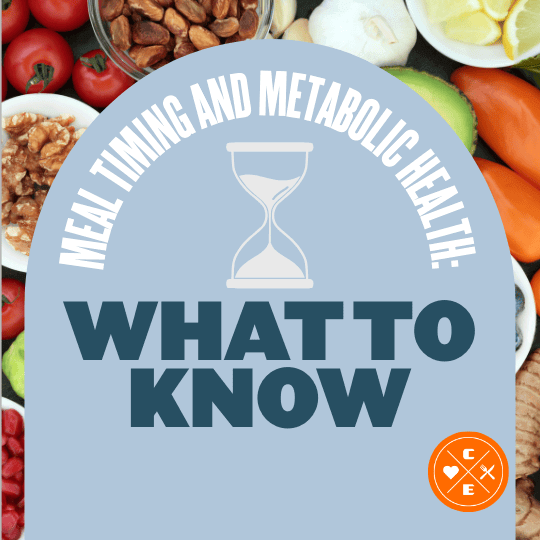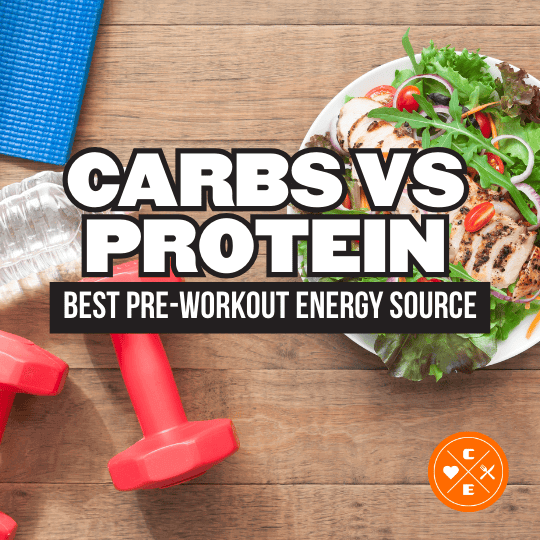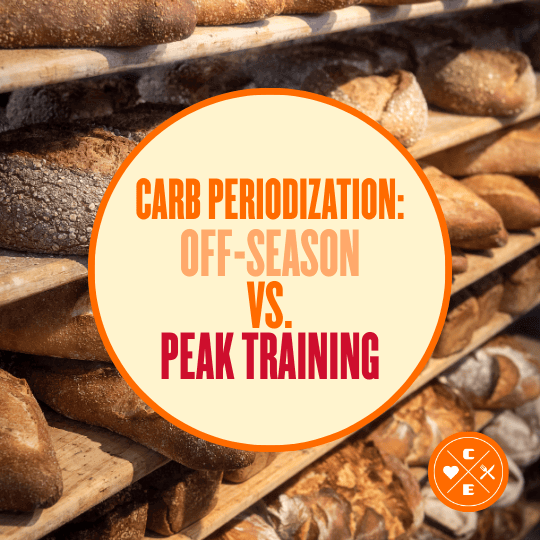Adaptogens for Gut-Brain Health: An Evidence-Based Guide
Jason Nista
Nutrition
01/02/2026 10:25am
13 minute read
Quick Answer: Adaptogens are plant-based compounds that help your body manage stress and may support the gut-brain connection. Key adaptogens for this purpose include ashwagandha (500 mg twice daily), turmeric/curcumin (500–2,000 mg with black pepper), and rhodiola rosea (400 mg daily). They work by regulating cortisol, supporting beneficial gut bacteria, and reducing inflammation. However, adaptogens complement—they don't replace—a balanced diet. Always consult a healthcare provider before starting any supplement regimen.
Understanding the Gut-Brain Connection
Your gut and brain are in constant conversation. This communication happens through the vagus nerve, hormones, and the trillions of bacteria living in your digestive tract. Scientists call this network the gut-brain axis, and it influences everything from your mood to your immune function.
Here's why this matters: about 70-80% of your immune system resides in your gastrointestinal tract, and your gut produces roughly 90% of your body's serotonin—the neurotransmitter most associated with mood regulation. When stress disrupts this system, the effects cascade in both directions. Chronic stress damages the gut lining, disrupts beneficial bacteria, and triggers inflammation that can reach the brain.
This is where adaptogens enter the picture. These plant compounds have been used in traditional medicine systems for centuries, and modern research is beginning to understand how they modulate stress pathways in ways that benefit both gut and brain health. For a deeper dive into how your digestive system communicates with your brain, see our guide on how your gut biome connects to brain function.
What Are Adaptogens?
Adaptogens are a class of herbs, roots, and mushrooms that help the body adapt to stress and maintain balance. The term was coined in 1947 by Soviet scientist Nikolai Lazarev, who defined them as substances that increase resistance to a broad spectrum of stressors without disturbing normal biological functions.
What sets adaptogens apart from other supplements is their bidirectional action. Rather than pushing your body in one direction (like a stimulant or sedative would), adaptogens help normalize function. If cortisol is too high, they help bring it down. If your stress response is sluggish, they can support it. This balancing effect is particularly relevant for gut-brain health, where equilibrium is essential.
The claim is that adaptogens reduce your body's reaction to stress and help you adapt to stressors better, according to researchers at UCLA Health. While they're not a cure-all, a growing body of evidence suggests certain adaptogens can meaningfully support stress resilience when combined with healthy lifestyle practices.
Key Adaptogens for Gut-Brain Health
Ashwagandha
Ashwagandha (Withania somnifera) is perhaps the most studied adaptogen for stress and gut-brain support. Used for thousands of years in Ayurvedic medicine, it's now backed by clinical research showing meaningful effects on cortisol regulation and anxiety reduction.
Dr. Yufang Lin, an integrative medicine specialist at the Cleveland Clinic, notes that ashwagandha has long been used to increase energy, improve overall health, and reduce inflammation, pain, and anxiety. Research supports these traditional uses—multiple controlled trials have demonstrated ashwagandha's potential to reduce perceived stress and cortisol levels, while a recent meta-analysis confirmed its benefits for sleep quality.
For gut health specifically, ashwagandha appears to support the gut barrier and may positively influence immune biomarkers—relevant given that most of your immune system resides in your digestive tract. The recommended dosage is 500 mg taken twice daily. When choosing a supplement, look for products verified by ConsumerLab, USP, or NSF International to ensure quality and accurate labeling.
Turmeric and Curcumin
Turmeric's active compound, curcumin, has emerged as a powerful player in gut-brain health research. Its primary mechanism is anti-inflammatory action, but the benefits extend further. Studies show curcumin can enhance the gut microbiome by promoting beneficial bacteria like Bifidobacterium and Lactobacilli while reducing harmful populations.
The challenge with curcumin is bioavailability—your body doesn't absorb it well on its own. Combining curcumin with black pepper (which contains piperine) can boost absorption by up to 2,000%, according to the National Institutes of Health. This is why quality curcumin supplements include black pepper extract, and why cooking with turmeric and black pepper together makes nutritional sense.
Suggested daily intake ranges from 500 to 2,000 milligrams. Beyond supplementation, incorporating turmeric into your cooking provides cumulative benefits. It pairs well with anti-inflammatory foods like fatty fish, leafy greens, and olive oil—the same foods emphasized in our guide to sleep and overall health.
Rhodiola Rosea
Rhodiola rosea, sometimes called golden root, is particularly well-researched for stress-related fatigue and cognitive function. In a 12-week study of 118 individuals experiencing burnout, 400 mg of rhodiola daily led to significant improvements in stress levels, fatigue, mood, and focus.
Unlike some adaptogens that have calming effects, rhodiola tends to be more energizing. This makes it ideal for morning use, particularly for people dealing with mental fatigue or difficulty concentrating under stress. The recommended approach is to use supplements standardized to contain 3% rosavins and 1% salidrosides, at a daily dosage of 400 mg.
Rhodiola's effects on gut health are less directly studied than ashwagandha or curcumin, but preclinical research suggests it may influence gut bacteria composition. Its stress-reducing effects likely provide indirect gut benefits, since chronic stress is one of the primary disruptors of microbiome balance.
How Adaptogens Work: The Science
Regulating the Stress Response
Adaptogens primarily work by modulating the hypothalamic-pituitary-adrenal (HPA) axis—the system that controls your body's stress response. When you encounter a stressor, this axis triggers cortisol release. In acute situations, that's appropriate and helpful. But when stress becomes chronic, sustained cortisol elevation damages tissues throughout the body, including the gut lining.
Research published in the Journal of Functional Foods found that adaptogens influence glucocorticoid receptors, helping the body maintain stability during stressful situations. This is particularly relevant given that 41% of adults worldwide reported experiencing high stress levels in recent surveys. By helping normalize cortisol patterns, adaptogens may protect both gut and brain from stress-induced damage.
Supporting Gut Bacteria
Emerging research is revealing direct effects of adaptogens on the gut microbiome. A 2022 study in the Journal of Ginseng Research found that consuming 3 grams of red ginseng extract daily for six months significantly enhanced gut microbiome richness in middle-aged adults. Lion's mane mushroom has shown similar promise, improving microbiome diversity and increasing production of short-chain fatty acids (SCFAs)—compounds that fuel gut cells and reduce inflammation.
This matters because microbiome diversity is increasingly recognized as a marker of gut and overall health. A diverse bacterial population is more resilient to disruption and better at producing the compounds your gut and brain need to communicate effectively.
Reducing Inflammation
Chronic inflammation is a common thread linking stress, gut dysfunction, and brain health problems. Adaptogens appear to interrupt this cycle through multiple mechanisms: blocking pro-inflammatory signaling pathways, activating antioxidant defenses, and modulating neuroinflammation.
Research suggests adaptogens may help regulate gene expression of inflammatory markers, which could explain their broad-spectrum effects. By reducing intestinal permeability (sometimes called "leaky gut"), they help prevent inflammatory molecules from entering systemic circulation and reaching the brain. This protective effect may be particularly relevant for people dealing with chronic stress or inflammatory conditions.
Using Adaptogens Effectively
Choosing the Right Adaptogens
Different adaptogens suit different needs. If sleep is your primary concern, ashwagandha's calming effects make it a strong choice. For mental fatigue and focus, rhodiola's energizing properties may be more appropriate. For general anti-inflammatory support and gut health, curcumin offers well-documented benefits.
Many people benefit from combining adaptogens, but it's wise to start with one at a time. This allows you to assess your body's response before adding complexity. Consulting with a naturopathic physician or integrative medicine specialist can help identify the most effective combination for your specific situation.
Timing and Dosage
When you take adaptogens matters as much as which ones you choose. Energizing adaptogens like rhodiola, ginseng, and cordyceps work best in the morning—taking them late in the day can interfere with sleep. Calming adaptogens like ashwagandha and holy basil are better suited for evening use, when their relaxing effects can support rest.
Start with lower doses than recommended and increase gradually over several days. This approach lets you monitor for any adverse reactions and find your optimal dose. Most experts recommend cycling adaptogens—using them for 6-12 weeks, then taking a break—to prevent tolerance buildup and maintain effectiveness.
Integrating Adaptogens with Diet
Adaptogens work best as part of a comprehensive approach to gut-brain health, not as standalone solutions. The Cleveland Clinic describes them as a "temporary bandage" rather than a cure for long-term stress. This framing is important: adaptogens complement healthy eating and lifestyle practices but shouldn't replace them.
Practical ways to incorporate adaptogens into your routine include adding ginseng to morning coffee or smoothies, cooking with turmeric at lunch (paired with black pepper and healthy fat for absorption), and drinking holy basil tea in the evening. These approaches provide adaptogenic benefits while reinforcing healthy eating patterns.
The foundation should always be nutrient-dense, balanced meals. Our Ultimate Guide to Dietary Fiber covers how fiber-rich foods support the gut microbiome—the same microbiome that adaptogens help protect.
Safety Considerations
Potential Side Effects
While adaptogens are generally well-tolerated, they're not without risks. Digestive issues including abdominal pain, nausea, and changes in bowel habits are among the most commonly reported side effects. Some people experience nervous system effects like anxiety, drowsiness, or headaches. Cardiovascular effects, including palpitations or blood pressure changes, can occur with certain adaptogens.
A review of adverse events related to antidepressant use found that 9% of cases involved adaptogen interactions—a reminder that these aren't inert substances. If you experience any concerning symptoms, discontinue use and consult a healthcare provider.
Drug Interactions
Adaptogens can interact with several medication categories. Blood pressure medications may be affected by adaptogens that influence cardiovascular function. Diabetes treatments can interact with adaptogens that affect blood sugar regulation. Sleep aids may have enhanced effects when combined with calming adaptogens. Thyroid medications and antidepressants (particularly SSRIs) also carry interaction potential.
Dr. Dana Ellis Hunnes, senior dietitian at UCLA Health, advises patients not to take herbs and supplements without professional guidance because they may interact with medications. "Your body's reaction to those things may do more harm than good," she notes.
Before starting any adaptogen, discuss it with your healthcare provider—especially if you take prescription medications or have chronic health conditions.
The Food-First Foundation
Adaptogens can support gut-brain health, but they work best when built on a foundation of good nutrition. The foods you eat every day have a more profound and consistent impact on your microbiome, inflammation levels, and stress resilience than any supplement can provide.
Anti-inflammatory foods like fatty fish, leafy greens, berries, and olive oil provide the raw materials your gut and brain need to function optimally. Fiber-rich foods feed beneficial bacteria, supporting the same microbiome diversity that certain adaptogens enhance. Fermented foods introduce probiotic bacteria that strengthen gut barrier function. Adequate protein supports neurotransmitter production and tissue repair.
When your baseline nutrition is solid, adaptogens have something to build on. When nutrition is poor, no amount of supplementation can compensate. This is why meal quality matters—and why consistent access to balanced, nutrient-dense meals makes such a difference for people pursuing health goals.
Clean Eatz Kitchen's meal plans are designed with this foundation in mind. Each meal balances protein, complex carbohydrates, and vegetables in portions that support healthy eating without the stress of daily meal planning and preparation. For people incorporating adaptogens into their routine, having reliable access to quality nutrition removes one more variable from the equation.
Frequently Asked Questions
How do adaptogens help improve the connection between the gut and brain?
Adaptogens regulate the HPA axis, which controls your stress response. By modulating cortisol levels, they reduce the inflammatory cascade that damages gut lining and disrupts the microbiome. Some adaptogens also directly support beneficial gut bacteria and strengthen the intestinal barrier, improving signaling between your digestive system and brain.
What should I know before taking adaptogens with other medications?
Adaptogens can interact with blood pressure medications, diabetes treatments, thyroid medications, sleep aids, and antidepressants. Always consult your healthcare provider before adding adaptogens, especially if you take prescription medications. Start with low doses to monitor your body's response.
What's the best way to include adaptogens in my daily routine?
Take energizing adaptogens (rhodiola, ginseng) in the morning and calming adaptogens (ashwagandha) in the evening. Start with one adaptogen at a low dose, then gradually increase. Cycle your use—6-12 weeks on, then a break—to maintain effectiveness. Always pair adaptogens with balanced nutrition for best results.
Are adaptogens safe for long-term use?
Studies suggest adaptogens work best for short to medium durations (under six months) because your body may build tolerance. Side effects are generally rare but can include digestive discomfort, headaches, or allergic reactions. Cycling between adaptogens and taking periodic breaks helps maintain their effectiveness.
Can diet alone support gut-brain health without supplements?
Absolutely. A whole-foods diet rich in fiber, fermented foods, lean proteins, and anti-inflammatory ingredients provides the foundation for gut-brain health. Adaptogens can complement healthy eating but shouldn't replace it—nutrition always comes first.
The Bottom Line
Adaptogens offer a promising complementary approach to supporting gut-brain health. The research on ashwagandha, curcumin, and rhodiola suggests meaningful benefits for stress regulation, microbiome support, and inflammation reduction. But context matters: these compounds work best as part of a comprehensive approach that prioritizes good nutrition, adequate sleep, and stress management practices.
If you're considering adaptogens, start with one, use it consistently for several weeks, and pay attention to how your body responds. Consult a healthcare provider before beginning, especially if you take medications or have health conditions. And remember that the foundation of gut-brain health isn't found in any supplement—it's built through the meals you eat every day.
For more on supporting your health through nutrition, explore our guides on sleep and overall health, dietary fiber, and mindful eating for gut-brain health.
References
1. Cleveland Clinic. "Adaptogens." https://my.clevelandclinic.org/health/drugs/22361-adaptogens
2. Healthline. "A Smart Girl's Guide to Adaptogens." https://www.healthline.com/health/stress/smart-girls-guide-to-adaptogens
3. National Institutes of Health Office of Dietary Supplements. "Ashwagandha - Health Professional Fact Sheet." https://ods.od.nih.gov/factsheets/Ashwagandha-HealthProfessional
4. Cleveland Clinic Health Essentials. "What Is Ashwagandha?" https://health.clevelandclinic.org/what-is-ashwagandha
5. Healthline. "Rhodiola Rosea: Benefits, Side Effects, and Dosage." https://www.healthline.com/nutrition/rhodiola-rosea
6. PMC. "Curcumin and the Gut Microbiome." https://pmc.ncbi.nlm.nih.gov/articles/PMC10577457
7. Riverside Healthcare. "The Benefits of Turmeric." https://www.riversideonline.com/patients-and-visitors/healthy-you-blog
8. Flore. "Ashwagandha and Your Gut." https://flore.com/blogs/learn/ashwagandha-and-your-gut
9. ScienceDirect. "Adaptogens and the HPA Axis." https://www.sciencedirect.com/science/article/pii/S1756464623002955
10. UCLA Health. "What Are Adaptogens and Should You Be Taking Them?" https://www.uclahealth.org/news/article/what-are-adaptogens-and-should-you-be-taking-them
11. Banner Health. "Are Adaptogens the Natural Solution to Wellness?" https://www.bannerhealth.com/healthcareblog/teach-me/are-adaptogens-the-natural-solution-to-wellness
12. Food Guides. "Do Adaptogens Improve Gut Health?" https://foodguides.com/blogs/from-the-experts/do-adaptogens-improve-gut-health
13. PMC. "Anti-Neuroinflammatory Effects of Adaptogens." https://pmc.ncbi.nlm.nih.gov/articles/PMC10891670
14. Farma Impresa. "Adaptogens and Neuroinflammation." https://farmaimpresa.com/en/adaptogens-and-neuroinflammation-a-therapeutic-potential
Related Articles
Meal Timing and Metabolic Health: What Science Shows
18 minute read
Carbs vs Protein Before a Workout: Which Is Better?
5 minute read
Carb Periodization: Off-Season vs Peak Training Guide
14 minute read



